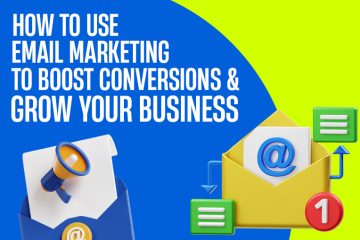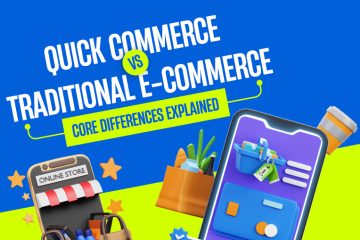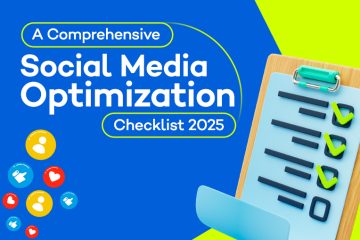The marketing landscape is changing, and businesses need cost-effective, data-driven strategies to thrive in 2025. Two of the most effective approaches are performance marketing and growth marketing. While both focus on driving business results, their methodologies, execution, and goals differ significantly. A performance marketing company focuses on immediate results by running campaigns where advertisers pay for specific actions such as clicks, conversions, or purchases. On the other hand, a growth marketing strategy focuses on long-term business expansion, leveraging data, user behavior insights, and continuous experimentation.
In this article, we’ll explore the key differences between performance marketing and growth marketing, helping businesses decide which approach suits them best.
1. Core Definition of Performance Marketing vs. Growth Marketing
Performance Marketing
Performance marketing focuses on short-term measurable results such as leads, sales, or website traffic. Advertisers pay only when a desired action is completed.
Growth Marketing
Growth marketing takes a holistic approach by using A/B testing, content marketing, and retention strategies to ensure long-term business expansion rather than just immediate conversions.
2. Focus on Paid vs. Organic Strategies
✔ Performance marketing relies primarily on paid advertising (Google Ads, Facebook Ads, and PPC).
✔ Growth marketing integrates organic and paid channels, including SEO, email marketing, and community building.
3. Short-Term vs. Long-Term Goals
✔ Performance marketing is focused on quick wins—generating immediate traffic, leads, or purchases.
✔ Growth marketing prioritizes sustainable customer acquisition, retention, and long-term revenue growth.
4. Data-Driven Optimization Strategies
✔ Performance marketing uses real-time analytics to optimize campaigns for maximum ROI.
✔ Growth marketing focuses on behavioral data and customer insights to refine long-term strategies.
5. Marketing Funnel Approach
✔ Performance marketing concentrates on the bottom of the funnel—targeting users ready to convert.
✔ Growth marketing nurtures customers throughout the entire sales funnel, from awareness to advocacy.
6. Advertising Platforms & Channels
✔ Performance marketing relies on paid PPC, social media ads, and affiliate marketing.
✔ Growth marketing uses a mix of SEO, email marketing, referral programs, and content marketing.
7. A/B Testing and Experimentation
✔ Performance marketing focuses on testing ad creatives and landing pages.
✔ Growth marketing tests entire user journeys, including pricing models, onboarding processes, and customer support.
Both strategies use data-driven insights to enhance campaign performance.
8. Budget & Cost Allocation
✔ Performance marketing involves paying for measurable outcomes, such as clicks or conversions.
✔ Growth marketing spreads the budget across multiple channels, including branding and community-building.
9. Customer Acquisition vs. Retention
✔ Performance marketing is acquisition-driven, focusing on new leads and conversions.
✔ Growth marketing emphasizes customer retention, loyalty, and referrals.
10. Content Marketing & SEO Integration
✔ Performance marketing often uses landing pages and ad copies for immediate conversions.
✔ Growth marketing relies heavily on SEO, blogs, and thought leadership for organic reach.
A performance marketing company ensures SEO and PPC strategies complement each other.
11. Role of Automation & AI
✔ Performance marketing uses AI-driven ad targeting and budget optimization.
✔ Growth marketing leverages AI for personalization, predictive analytics, and email automation.
A software development company in Delhi helps businesses implement AI-based marketing tools to optimize growth strategies.
12. Scalability & Flexibility
✔ Performance marketing can scale instantly by increasing ad spend.
✔ Growth marketing requires long-term nurturing, making it less immediate but more sustainable.
Businesses with high advertising budgets often scale faster using performance marketing.
13. Metrics & KPIs Used
Performance Marketing Metrics:
✔ Cost per click (CPC)
✔ Click-through rate (CTR)
✔ Cost per acquisition (CPA)
Growth Marketing Metrics:
✔ Customer lifetime value (LTV)
✔ Retention rates
✔ Organic search traffic
14. Adaptability to Market Changes
✔ Performance marketing can pivot quickly based on ad performance and bid adjustments.
✔ Growth marketing requires continuous testing and iteration to stay relevant.
Both strategies are essential for businesses looking to stay competitive in 2025.
15. Best Use Cases for Businesses
✔ Use Performance Marketing if you want instant traffic, leads, and conversions with measurable ROI.
✔ Use Growth Marketing if you want to build long-term customer relationships and brand credibility.
Which Strategy is Right for Your Business?
Both performance marketing and growth marketing have their place in a successful digital strategy.
A performance marketing company ensures quick sales and lead generation, while a software development company in Delhi helps businesses optimize automation, AI-driven analytics, and customer retention strategies.
In 2025, businesses that blend performance and growth marketing strategies will dominate the digital landscape.





0 Comments